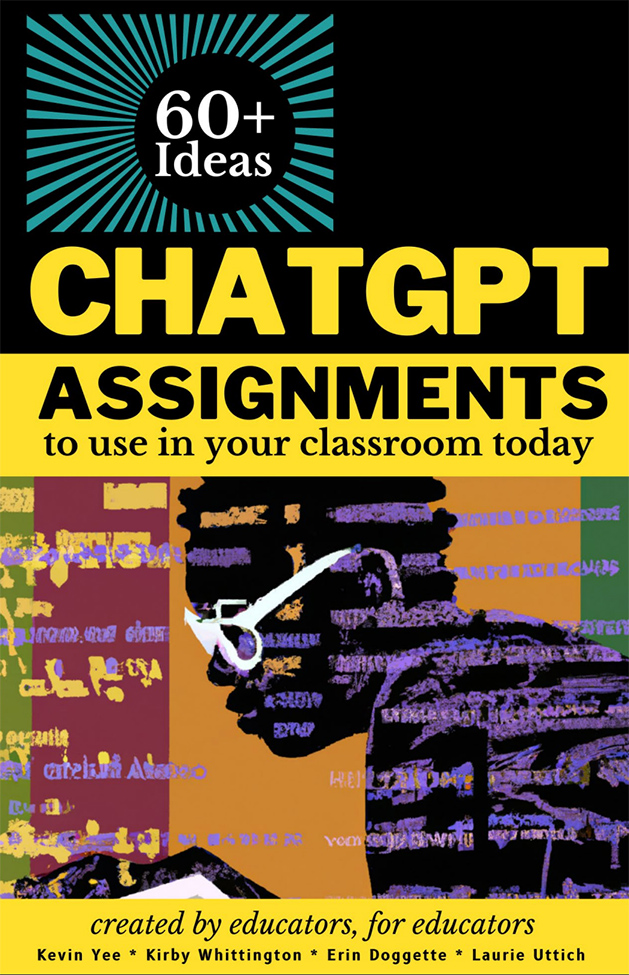60+ Ideas for ChatGPT Assignments — from stars.library.ucf.edu by Kevin Yee, Kirby Whittington, Erin Doggette, and Laurie Uttich
Artificial intelligence is disrupting higher education — from itweb.co.za by Rennie Naidoo; via GSV
Traditional contact universities need to adapt faster and find creative ways of exploring and exploiting AI, or lose their dominant position.
Higher education professionals have a responsibility to shape AI as a force for good.
Introducing Canva’s biggest education launch — from canva.com
We’re thrilled to unveil our biggest education product launch ever. Today, we’re introducing a whole new suite of products that turn Canva into the all-in-one classroom tool educators have been waiting for.
Also see Canva for Education.
Create and personalize lesson plans, infographics,
posters, video, and more. 100% free for
teachers and students at eligible schools.
ChatGPT and generative AI: 25 applications to support student engagement — from timeshighereducation.com by Seb Dianati and Suman Laudari
In the fourth part of their series looking at 100 ways to use ChatGPT in higher education, Seb Dianati and Suman Laudari share 25 prompts for the AI tool to boost student engagement
There are two ways to use ChatGPT — from theneurondaily.com
- Type to it.
- Talk to it (new).
…
Since then, we’ve looked to it for a variety of real-world business advice. For example, Prof Ethan Mollick posted a great guide using ChatGPT-4 with voice as a negotiation instructor.
In a similar fashion, you can consult ChatGPT with voice for feedback on:
- Job interviews.
- Team meetings.
- Business presentations.
With a prompt, GPT-4 with voice does a pretty good job of acting as a negotiation simulator/instructor. It is not all the way there, but as someone who builds educational simulations, I can tell you this is already impressively far along towards an effective teaching tool.… pic.twitter.com/IphPHF95cL
— Ethan Mollick (@emollick) October 15, 2023
Via The Rundown: Google is using AI to analyze the company’s Maps data and suggest adjustments to traffic light timing — aiming to cut driver waits, stops, and emissions.
- Project Green Light’s work to reduce urban emissions using AI — from blog.google
Project Green Light, a Google Research initiative, is helping cities improve traffic flow at intersections and reduce stop-and-go emissions.
Google Pixel’s face-altering photo tool sparks AI manipulation debate — from bbc.com by Darren Waters
The camera never lies. Except, of course, it does – and seemingly more often with each passing day.
In the age of the smartphone, digital edits on the fly to improve photos have become commonplace, from boosting colours to tweaking light levels.
Now, a new breed of smartphone tools powered by artificial intelligence (AI) are adding to the debate about what it means to photograph reality.
Google’s latest smartphones released last week, the Pixel 8 and Pixel 8 Pro, go a step further than devices from other companies. They are using AI to help alter people’s expressions in photographs.
Still using AI to help you mark a student’s work?
Mark a full class’s worth with one prompt.
Here’s the Whole Class Feedback Giant Prompt.
Comment & retweet & I’ll DM it to you.
Discover why thousands of teachers subscribe to the Sunday AI Educator ?https://t.co/ivpXYyWNzN
— Dan Fitzpatrick – The AI Educator (@theaieducatorX) October 22, 2023
From Digital Native to AI-Empowered: Learning in the Age of Artificial Intelligence — from campustechnology.com by Kim Round
The upcoming generation of learners will enter higher education empowered by AI. How can institutions best serve these learners and prepare them for the workplace of the future?
Dr. Chris Dede, of Harvard University and Co-PI of the National AI Institute for Adult Learning and Online Education, spoke about the differences between knowledge and wisdom in AI-human interactions in a keynote address at the 2022 Empowering Learners for the Age of AI conference. He drew a parallel between Star Trek: The Next Generation characters Data and Picard during complex problem-solving: While Data offers the knowledge and information, Captain Picard offers the wisdom and context from on a leadership mantle, and determines its relevance, timing, and application.
The Near-term Impact of Generative AI on Education, in One Sentence — from opencontent.org by David Wiley
This “decreasing obstacles” framing turned out to be helpful in thinking about generative AI. When the time came, my answer to the panel question, “how would you summarize the impact generative AI is going to have on education?” was this:
“Generative AI greatly reduces the degree to which access to expertise is an obstacle to education.”
We haven’t even started to unpack the implications of this notion yet, but hopefully just naming it will give the conversation focus, give people something to disagree with, and help the conversation progress more quickly.
How to Make an AI-Generated Film — from heatherbcooper.substack.com by Heather Cooper
Plus, Midjourney finally has a new upscale tool!
Eureka! NVIDIA Research Breakthrough Puts New Spin on Robot Learning — from blogs.nvidia.com by Angie Lee
AI agent uses LLMs to automatically generate reward algorithms to train robots to accomplish complex tasks.
From DSC:
I’m not excited about this, as I can’t help but wonder…how long before the militaries of the world introduce this into their warfare schemes and strategies?
The 93 Questions Schools Should Ask About AI — from edweek.org by Alyson Klein
The toolkit recommends schools consider:
- Purpose: How can AI help achieve educational goals?
- Compliance: How does AI fit with existing policies?
- Knowledge: How can schools advance AI Literacy?
- Balance: What are the benefits and risks of AI?
- Integrity: How does AI fit into policies on things like cheating?
- Agency: How can humans stay in the loop on AI?
- Evaluation: How can schools regularly assess the impact of AI?










